At LEARNS.EDU.VN, we understand your eagerness to master the piano, and you might be wondering, “How Long Does Learning Piano Take?”. This guide will explore the factors influencing your piano learning timeline and offer insights into effective practice strategies, different learning approaches, and the realistic expectations you should have on your musical journey. Let’s discover how you can make the most of your time and effort, turning your musical dreams into reality.
1. Understanding the Factors That Influence Piano Learning Time
Several elements significantly impact how long it takes to learn the piano. Understanding these can help you tailor your approach and set realistic goals.
1.1. Previous Musical Experience
Having prior musical background, such as playing another instrument or understanding music theory, can significantly reduce the learning curve. Familiarity with musical concepts and rhythms makes it easier to grasp piano techniques.
| Experience Level | Impact on Learning |
|---|---|
| Played another instrument | Faster progress due to understanding of rhythm, pitch, and musicality. |
| Basic music theory knowledge | Easier to read sheet music and understand chord progressions. |
| No prior experience | Requires more time to develop foundational skills. |
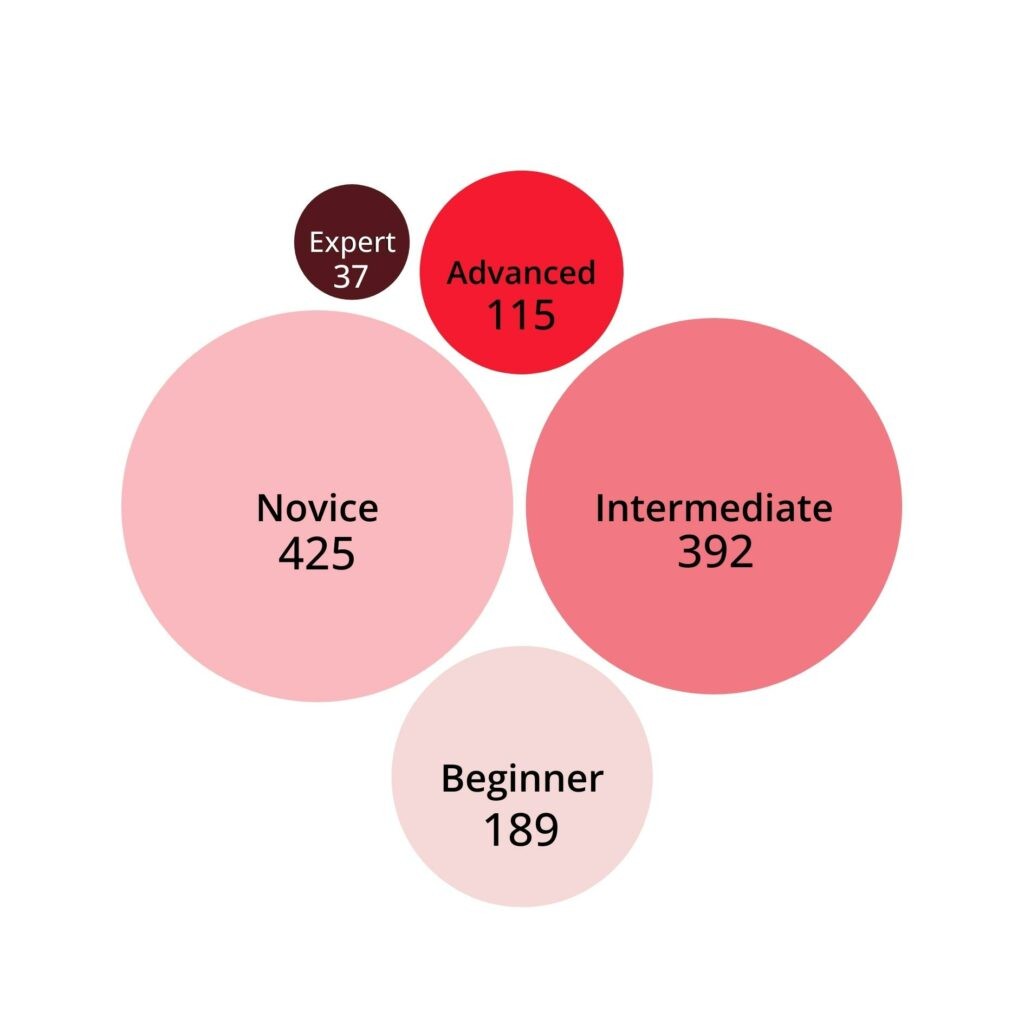
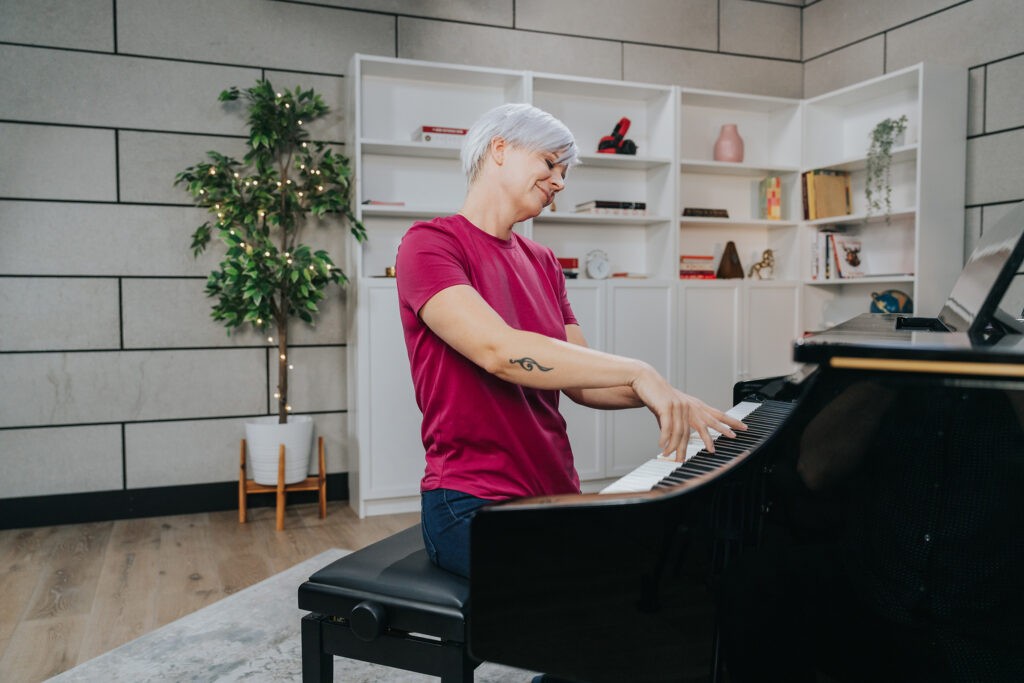
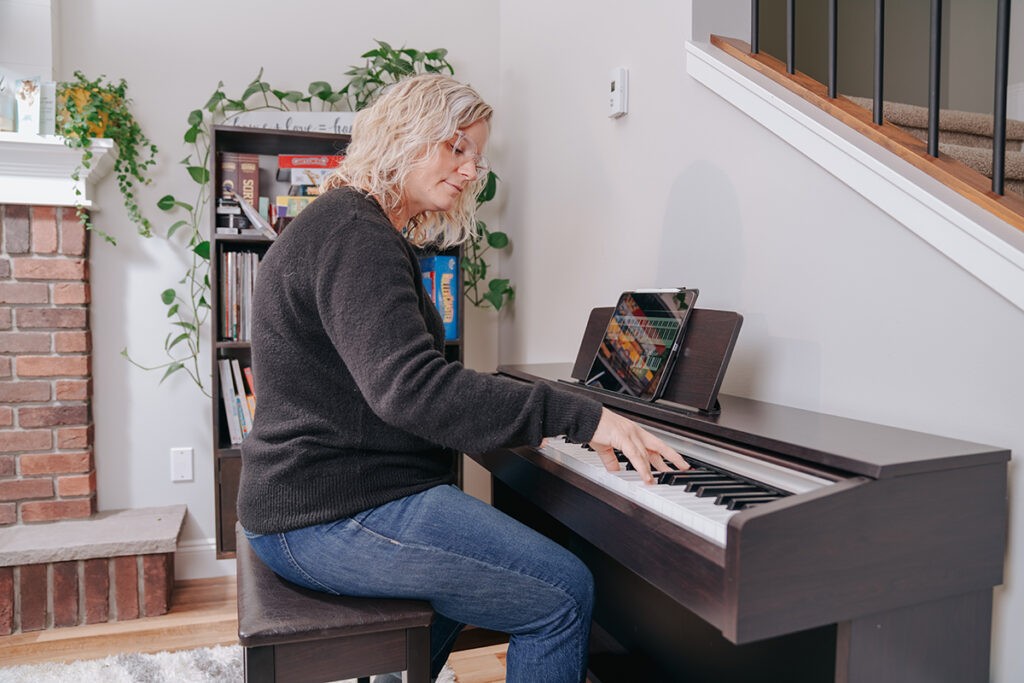
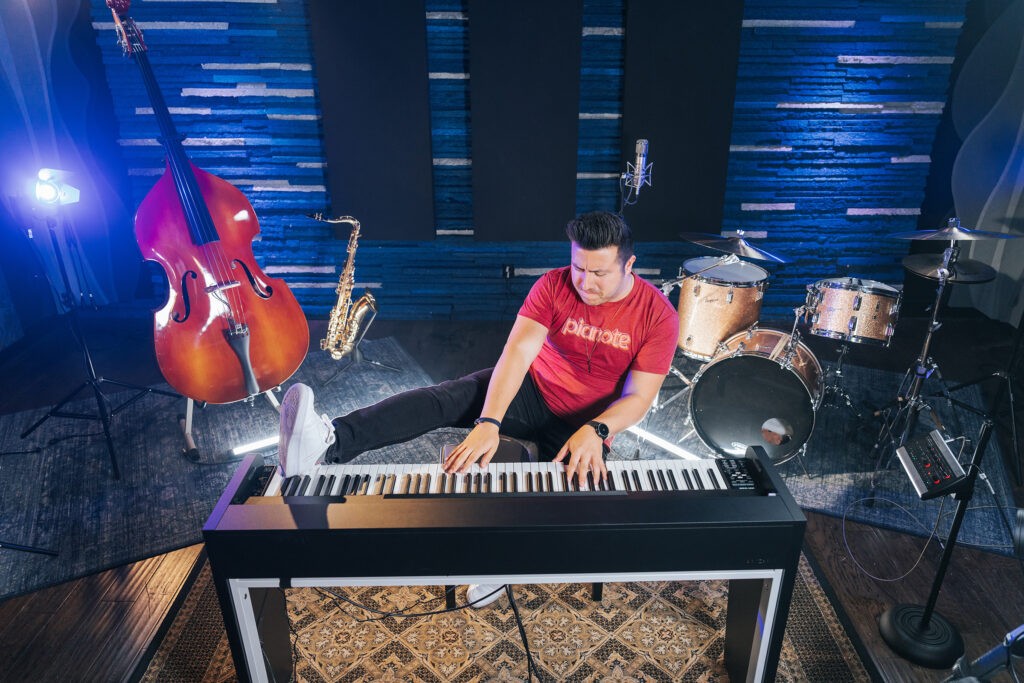
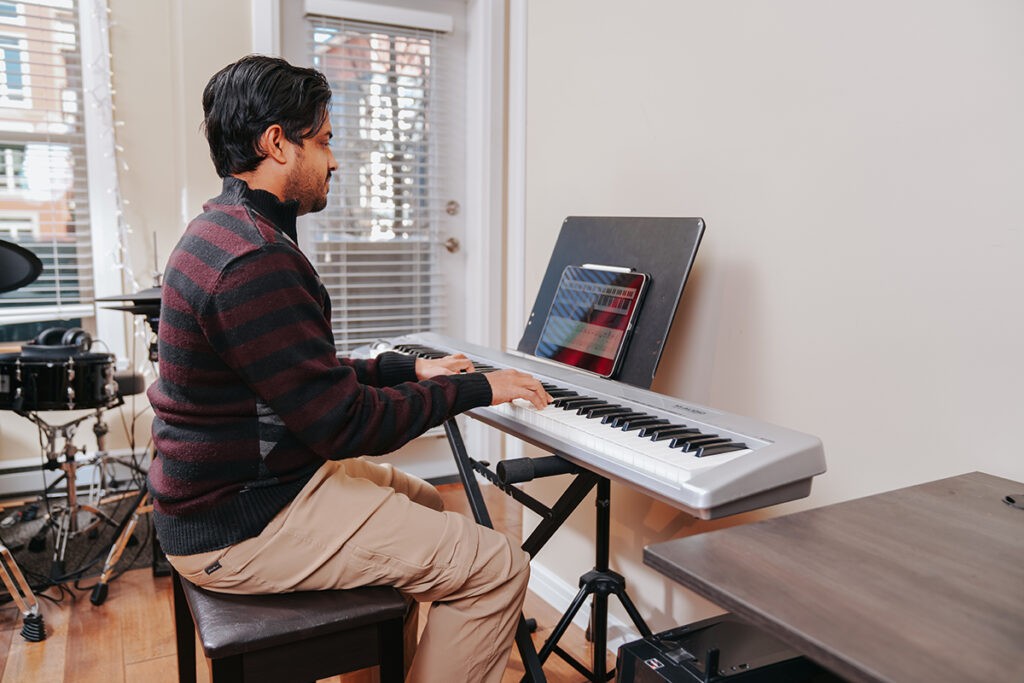
1.2. Practice Habits
Consistent, focused practice is paramount. Regular, shorter sessions are more effective than infrequent, lengthy ones. Aim for daily practice, even if it’s just for 30 minutes.
- Frequency: Daily practice is ideal.
- Duration: Short, focused sessions (30-60 minutes) are more effective than long, infrequent ones.
- Consistency: Regular practice helps reinforce learning and build muscle memory.
1.3. Learning Method
The approach you choose can make a big difference. Options include:
- Private Teacher: Offers personalized instruction and immediate feedback.
- Online Courses: Provides structured lessons and flexibility.
- Self-Teaching: Relies on books, tutorials, and personal discipline.
1.4. Personal Goals and Motivation
What you want to achieve with the piano shapes your learning journey. Are you aiming to play professionally, entertain friends, or simply enjoy a new hobby? Your goals influence your dedication and practice intensity.
- Professional aspirations: Requires intense, dedicated practice and formal training.
- Hobbyist: Learning at a comfortable pace with a focus on enjoyment.
- Specific goals: Learning songs for personal enjoyment or to perform for friends.
1.5. Natural Aptitude
Some individuals naturally pick up musical skills more quickly than others. While aptitude can play a role, dedication and hard work are more crucial for long-term success.
- Musical talent: Natural inclination towards music, rhythm, and pitch.
- Cognitive abilities: Memory, hand-eye coordination, and problem-solving skills.
- Perseverance: Willingness to practice and overcome challenges.
2. Setting Realistic Expectations: Timelines for Different Skill Levels
Understanding the time it takes to reach different proficiency levels can help you stay motivated and avoid discouragement.
2.1. Beginner Level (0-6 Months)
At this stage, you’ll learn the fundamentals:
- Basic posture and hand position
- Reading simple sheet music
- Playing basic chords and scales
- Simple songs like “Mary Had a Little Lamb”
Expected Progress: You’ll be able to play simple melodies and chords, read basic sheet music, and understand fundamental musical concepts.
2.2. Novice Level (6-12 Months)
You’ll progress to playing slightly more complex pieces and expanding your knowledge of music theory.
- More complex chords and scales
- Playing simple songs with both hands
- Understanding basic music theory
- Playing songs like “Ode to Joy”
Expected Progress: You’ll be comfortable playing simple songs with both hands, understand more complex chords and scales, and have a basic grasp of music theory.
2.3. Intermediate Level (1-3 Years)
This level involves greater technical skill and musical understanding. According to a survey, 41% of intermediate pianists have been playing for 1-3 years, which aligns with the timeline. You’ll learn:
- Playing more complex pieces
- Developing technique through scales and exercises
- Learning about different musical styles
- Playing songs like “Für Elise”
Expected Progress: You’ll be able to play a wide range of pieces with confidence, develop your technique through regular practice, and understand various musical styles. You’ll also be seen by others as someone who knows what they’re doing.
2.4. Advanced Level (3-5 Years)
You’ll be capable of playing demanding pieces and exploring advanced musical concepts.
- Mastering complex pieces
- Developing advanced technique
- Performing in public
- Composing and improvising music
Expected Progress: You’ll have a high level of technical skill and musical understanding, be able to perform in public, and potentially compose or improvise music.
2.5. Expert Level (5+ Years)
At this level, you’ll have mastered the piano and can perform at a professional level. Music becomes your calling.
- Performing professionally
- Teaching piano
- Composing and arranging music
- Continuously refining skills and exploring new musical horizons
Expected Progress: You’ll be able to perform professionally, teach piano, compose music, and continuously refine your skills.
3. Effective Practice Strategies to Accelerate Learning
Optimizing your practice sessions can significantly speed up your progress.
3.1. Set Clear Goals
Define what you want to achieve in each practice session. Whether it’s mastering a specific passage or learning a new chord, having clear goals keeps you focused.
- Specific: Define exactly what you want to accomplish (e.g., “Master the first verse of ‘Clair de Lune'”).
- Measurable: Track your progress and see how far you’ve come.
- Achievable: Set realistic goals that are challenging but attainable.
- Relevant: Ensure your goals align with your overall musical aspirations.
- Time-bound: Set a deadline for achieving each goal.
3.2. Break Down Complex Tasks
Tackling complex pieces can be overwhelming. Break them into smaller, manageable sections. Focus on mastering each section before putting them together.
- Identify difficult passages: Pinpoint sections that pose a challenge.
- Practice in isolation: Focus on mastering each difficult passage individually.
- Slow practice: Start at a slow tempo and gradually increase speed as you improve.
- Repetition: Repeat each passage multiple times until you can play it smoothly.
3.3. Use a Metronome
A metronome helps you maintain a consistent tempo and improve your sense of rhythm. Start slowly and gradually increase the speed as you become more comfortable.
- Consistent tempo: Ensures you maintain a steady beat throughout your practice.
- Rhythm development: Improves your sense of timing and rhythm.
- Gradual progression: Allows you to gradually increase speed and complexity.
3.4. Practice Regularly
Consistency is key. Aim for daily practice, even if it’s just for a short period. Regular practice reinforces learning and builds muscle memory.
- Daily practice: Even short sessions are more effective than infrequent, long ones.
- Set a schedule: Designate a specific time each day for practice.
- Make it a habit: Integrate practice into your daily routine.
3.5. Seek Feedback
Getting feedback from a teacher or experienced pianist can help you identify areas for improvement and correct bad habits early on.
- Private lessons: Personalized instruction and immediate feedback.
- Online communities: Share recordings and get feedback from peers.
- Performances: Gain experience playing for others and receive constructive criticism.
4. Choosing the Right Learning Method for You
Selecting the appropriate learning method is crucial for efficient progress. Each method has its advantages and disadvantages.
4.1. Private Lessons
- Pros: Personalized instruction, immediate feedback, structured learning, and tailored curriculum.
- Cons: Can be expensive, requires scheduling, and depends on the teacher’s expertise.
4.2. Online Courses
- Pros: Flexibility, affordability, access to a wide range of courses, and structured learning. Platforms like Pianote, Tonebase, and Piano With Jonny are popular choices.
- Cons: Requires self-discipline, may lack personalized feedback, and quality varies.
4.3. Self-Teaching
- Pros: Inexpensive, flexible, learn at your own pace, and explore specific interests.
- Cons: Requires significant self-discipline, lacks structured learning, potential for developing bad habits, and requires finding reliable resources.
4.4. Gamified Methods
- Pros: Engaging, fun, interactive, and provides immediate feedback.
- Cons: May not develop a deep understanding of music theory, can be expensive, and may not suit all learning styles. Platforms like Flowkey and Simply Piano fall into this category.
| Learning Method | Pros | Cons |
|---|---|---|
| Private Lessons | Personalized instruction, immediate feedback | Expensive, scheduling constraints |
| Online Courses | Flexible, affordable, structured | Requires self-discipline, lacks personal touch |
| Self-Teaching | Inexpensive, learn at own pace | Requires discipline, potential for bad habits |
| Gamified Methods | Engaging, interactive | May lack depth, can be expensive |
5. Maximizing Your Learning Potential
Beyond practice strategies and learning methods, other factors can enhance your piano learning experience.
5.1. Immerse Yourself in Music
Listening to a variety of piano music can inspire you and improve your musicality. Attend concerts, listen to recordings, and explore different genres.
- Active Listening: Pay attention to the details of the music, such as melody, harmony, and rhythm.
- Explore Different Genres: Listen to classical, jazz, pop, and other genres to broaden your musical horizons.
- Attend Concerts: Experience live performances to see how professional pianists play.
5.2. Join a Community
Connecting with other piano players can provide support, motivation, and valuable insights. Join online forums, local music groups, or attend workshops.
- Online Forums: Participate in discussions, ask questions, and share your progress.
- Local Music Groups: Meet other musicians in your area and collaborate on projects.
- Workshops and Seminars: Learn from experienced pianists and network with other learners.
5.3. Set Realistic Goals
While it’s important to challenge yourself, setting realistic goals will help you stay motivated. Celebrate small victories and focus on continuous improvement rather than perfection.
- Start Small: Begin with achievable goals and gradually increase the difficulty.
- Celebrate Progress: Acknowledge your accomplishments and reward yourself for reaching milestones.
- Focus on Improvement: Concentrate on continuous growth rather than striving for immediate perfection.
5.4. Be Patient and Persistent
Learning piano takes time and effort. There will be plateaus and setbacks along the way. Stay patient, persistent, and enjoy the process.
- Embrace the Journey: View learning piano as a lifelong pursuit rather than a race to the finish line.
- Learn from Mistakes: Don’t be discouraged by errors; instead, use them as opportunities to learn and grow.
- Stay Positive: Maintain a positive attitude and focus on the progress you’ve made.
6. How LEARNS.EDU.VN Can Help You on Your Piano Journey
LEARNS.EDU.VN provides a wealth of resources to support your piano learning journey. Whether you’re a beginner or an advanced player, our platform offers valuable tools and guidance.
6.1. Structured Courses
Our structured piano courses are designed to take you from beginner to advanced levels. Each course includes video lessons, practice exercises, and progress tracking to keep you motivated.
- Beginner Courses: Learn the fundamentals of piano playing, including posture, hand position, and basic music theory.
- Intermediate Courses: Develop your technique, learn more complex pieces, and explore different musical styles.
- Advanced Courses: Master challenging pieces, refine your skills, and explore advanced musical concepts.
6.2. Expert Instructors
Our instructors are experienced musicians and educators who are passionate about helping you achieve your musical goals. They provide clear, concise instruction and personalized feedback to help you improve.
- Qualified Teachers: Learn from experienced and knowledgeable instructors.
- Personalized Feedback: Receive constructive criticism and guidance to improve your playing.
- Supportive Community: Connect with other learners and share your progress.
6.3. Practice Tools
We offer a range of practice tools to help you optimize your practice sessions. These include a metronome, sheet music library, and progress tracker.
- Metronome: Maintain a consistent tempo and improve your sense of rhythm.
- Sheet Music Library: Access a vast collection of sheet music for various skill levels and genres.
- Progress Tracker: Monitor your progress and stay motivated.
6.4. Community Support
Join our online community to connect with other piano players, share your progress, and get support and encouragement.
- Forums: Participate in discussions, ask questions, and share your experiences.
- Groups: Join groups based on your skill level or musical interests.
- Events: Attend online workshops and seminars to learn from experts and network with other learners.
By utilizing the resources available at LEARNS.EDU.VN, you can accelerate your piano learning journey and achieve your musical aspirations.
7. Case Studies: Real-Life Piano Learning Timelines
To provide a more concrete understanding, let’s look at some case studies of individuals who have learned to play the piano.
7.1. Sarah’s Story: From Beginner to Intermediate in 18 Months
Sarah, a 30-year-old professional, started learning piano with no prior musical experience. She took weekly private lessons and practiced for 30 minutes every day. After 18 months, she could play intermediate-level pieces like “Clair de Lune” and “Gymnopédie No. 1.”
- Background: No prior musical experience.
- Learning Method: Weekly private lessons and daily practice.
- Practice Schedule: 30 minutes per day.
- Timeline: 18 months.
- Achievement: Played intermediate-level pieces.
7.2. Michael’s Story: Self-Taught to Novice in 12 Months
Michael, a 22-year-old student, decided to learn piano using online resources. He practiced for 45 minutes, 5 days a week. Within a year, he could play simple songs like “Let It Be” and “Hallelujah.”
- Background: Some experience playing guitar in high school.
- Learning Method: Self-taught using online resources.
- Practice Schedule: 45 minutes, 5 days a week.
- Timeline: 12 months.
- Achievement: Played simple songs.
7.3. Emily’s Story: Advanced Player After 4 Years
Emily started piano lessons at age 8 and practiced consistently throughout her childhood. By age 12, she was performing advanced pieces by composers like Chopin and Liszt.
- Background: Started lessons at a young age and practiced consistently.
- Learning Method: Private lessons and rigorous practice.
- Practice Schedule: 1-2 hours per day.
- Timeline: 4 years.
- Achievement: Performed advanced pieces.
These case studies illustrate that the time it takes to learn piano varies depending on individual circumstances and dedication.
8. Common Pitfalls to Avoid
Being aware of common mistakes can help you avoid setbacks and maintain steady progress.
8.1. Neglecting Fundamentals
Skipping over basic techniques and music theory can lead to problems later on. Ensure you have a solid foundation before moving on to more advanced material.
- Posture and Hand Position: Proper technique is crucial for preventing injuries and playing efficiently.
- Music Theory: Understanding music theory helps you understand how music works and makes it easier to learn new pieces.
- Scales and Chords: Mastering scales and chords builds finger dexterity and musical vocabulary.
8.2. Inconsistent Practice
Irregular practice can hinder your progress. Aim for consistent practice, even if it’s just for a short period each day.
- Set a Schedule: Designate a specific time each day for practice.
- Make it a Habit: Integrate practice into your daily routine.
- Stay Disciplined: Stick to your practice schedule, even when you don’t feel like it.
8.3. Comparing Yourself to Others
Everyone learns at their own pace. Comparing yourself to others can lead to discouragement. Focus on your own progress and celebrate your achievements.
- Individual Progress: Focus on your own journey and celebrate your achievements.
- Avoid Comparison: Don’t compare yourself to others; everyone learns at their own pace.
- Set Personal Goals: Set goals that are relevant to your aspirations and abilities.
8.4. Ignoring Feedback
Failing to seek or heed feedback can prevent you from identifying and correcting bad habits. Be open to constructive criticism and use it to improve.
- Seek Guidance: Work with a teacher or mentor who can provide feedback.
- Record Yourself: Listen to your playing and identify areas for improvement.
- Be Open to Criticism: Use constructive criticism to improve your skills.
8.5. Over practicing
Overdoing it can lead to physical strain and burnout. Balance practice with rest and other activities to stay healthy and motivated.
- Short, Focused Sessions: Practice in short bursts with breaks in between.
- Listen to Your Body: Take breaks when you feel tired or sore.
- Balance Practice with Rest: Ensure you get enough rest and engage in other activities to avoid burnout.
| Pitfall | Solution |
|---|---|
| Neglecting Fundamentals | Focus on mastering basic techniques and music theory. |
| Inconsistent Practice | Aim for consistent practice, even if it’s just for a short period each day. |
| Comparing Yourself to Others | Focus on your own progress and celebrate your achievements. |
| Ignoring Feedback | Be open to constructive criticism and use it to improve. |
| Overpracticing | Balance practice with rest and other activities to avoid burnout. |
9. The Role of Technology in Accelerating Piano Learning
Modern technology offers numerous tools and resources to enhance your piano learning experience.
9.1. Piano Learning Apps
Apps like Flowkey and Simply Piano provide interactive lessons, real-time feedback, and gamified exercises to make learning fun and engaging.
- Interactive Lessons: Step-by-step guidance and visual aids to help you learn.
- Real-Time Feedback: Immediate feedback on your playing to help you improve.
- Gamified Exercises: Fun and engaging exercises to keep you motivated.
9.2. Online Tutorials and Courses
Platforms like YouTube and LEARNS.EDU.VN offer a vast library of tutorials and courses covering various aspects of piano playing, from basic techniques to advanced repertoire.
- Wide Range of Topics: Tutorials and courses covering various aspects of piano playing.
- Expert Instruction: Learn from experienced musicians and educators.
- Flexible Learning: Learn at your own pace and on your own schedule.
9.3. Virtual Piano Software
Virtual piano software allows you to practice on your computer or mobile device, even if you don’t have access to a physical piano.
- Practice Anywhere: Practice on your computer or mobile device, even without a physical piano.
- Variety of Sounds: Choose from a variety of piano sounds and instruments.
- Recording Capabilities: Record your playing and track your progress.
9.4. Digital Sheet Music
Digital sheet music platforms provide access to a vast library of sheet music that can be easily accessed and annotated on your tablet or computer.
- Vast Library: Access a vast collection of sheet music for various skill levels and genres.
- Easy Access: Easily access and annotate sheet music on your tablet or computer.
- Interactive Features: Some platforms offer interactive features like playback and transposition.
Technology can be a powerful tool for accelerating your piano learning journey. By leveraging these resources, you can make your practice sessions more efficient and engaging.
10. Maintenance and Continued Growth
Once you’ve reached a certain level of proficiency, it’s important to maintain your skills and continue to grow as a pianist.
10.1. Regular Practice
Even after reaching an advanced level, regular practice is essential to maintain your skills and prevent regression.
- Consistency: Aim for daily practice, even if it’s just for a short period.
- Variety: Practice different types of pieces to challenge yourself and keep things interesting.
- Review: Regularly review pieces you’ve already learned to reinforce your skills.
10.2. Learn New Pieces
Continuously learning new pieces will help you expand your repertoire, develop new skills, and stay engaged with the piano.
- Challenge Yourself: Choose pieces that are slightly above your current skill level.
- Explore Different Genres: Try playing pieces from different musical genres to broaden your musical horizons.
- Set Goals: Set goals for learning new pieces and track your progress.
10.3. Perform Regularly
Performing for others can help you build confidence, improve your stage presence, and get valuable feedback.
- Practice Performing: Rehearse your performance and get comfortable playing in front of an audience.
- Start Small: Begin by performing for friends and family before moving on to larger audiences.
- Seek Feedback: Ask for feedback after your performances to identify areas for improvement.
10.4. Seek Further Education
Consider taking advanced lessons, attending workshops, or pursuing a formal music degree to deepen your knowledge and skills.
- Advanced Lessons: Work with a skilled teacher to refine your technique and musicality.
- Workshops and Seminars: Learn from experienced musicians and network with other learners.
- Formal Music Degree: Pursue a formal music education to deepen your knowledge and skills.
10.5. Stay Inspired
Continue to listen to piano music, attend concerts, and connect with other musicians to stay inspired and motivated.
- Attend Concerts: Experience live performances to see how professional pianists play.
- Listen to Music: Listen to a variety of piano music to inspire you and improve your musicality.
- Connect with Musicians: Join online forums, local music groups, or attend workshops to connect with other piano players.
| Maintenance Tip | Description |
|---|---|
| Regular Practice | Maintain your skills and prevent regression. |
| Learn New Pieces | Expand your repertoire and develop new skills. |
| Perform Regularly | Build confidence and improve your stage presence. |
| Seek Further Education | Deepen your knowledge and skills. |
| Stay Inspired | Stay motivated and engaged with the piano. |
FAQ: Frequently Asked Questions
1. How long does it take to learn piano basics?
It generally takes 3-6 months to learn the basics, including posture, hand position, basic chords, and reading simple sheet music.
2. Is it harder to learn piano as an adult?
While children may have more time and flexibility, adults can learn piano effectively with dedication and structured practice.
3. How often should I practice piano?
Aim for daily practice, even if it’s just for 30-60 minutes. Consistency is key to progress.
4. Is it possible to learn piano without a teacher?
Yes, but it requires significant self-discipline, access to reliable resources, and a willingness to seek feedback.
5. What are the best online resources for learning piano?
Popular online resources include Pianote, Tonebase, YouTube tutorials, and digital sheet music platforms.
6. How can I stay motivated while learning piano?
Set realistic goals, celebrate small victories, join a community, and focus on the joy of making music.
7. What are common mistakes to avoid when learning piano?
Neglecting fundamentals, inconsistent practice, comparing yourself to others, and ignoring feedback are common pitfalls.
8. What is the best age to start learning piano?
There is no best age, but starting young can provide a head start. Adults can also learn effectively with dedication.
9. Can technology help me learn piano faster?
Yes, piano learning apps, online tutorials, and virtual piano software can enhance your learning experience.
10. How can I maintain my piano skills after reaching an advanced level?
Regular practice, learning new pieces, performing regularly, and seeking further education are essential for maintaining your skills.
Conclusion
The journey to mastering the piano is a marathon, not a sprint. “How long does learning piano take?” depends on many factors, including your dedication, practice habits, learning method, and personal goals. Whether you’re aiming to play professionally or simply enjoy a new hobby, the resources and guidance available at LEARNS.EDU.VN can help you achieve your musical aspirations. Remember to set realistic goals, stay patient, and enjoy the process.
Ready to embark on your piano learning journey? Visit LEARNS.EDU.VN today to explore our structured courses, expert instructors, and practice tools. For further inquiries, reach out to us at 123 Education Way, Learnville, CA 90210, United States, or contact us via Whatsapp at +1 555-555-1212. Start your musical adventure with learns.edu.vn and unlock your potential!